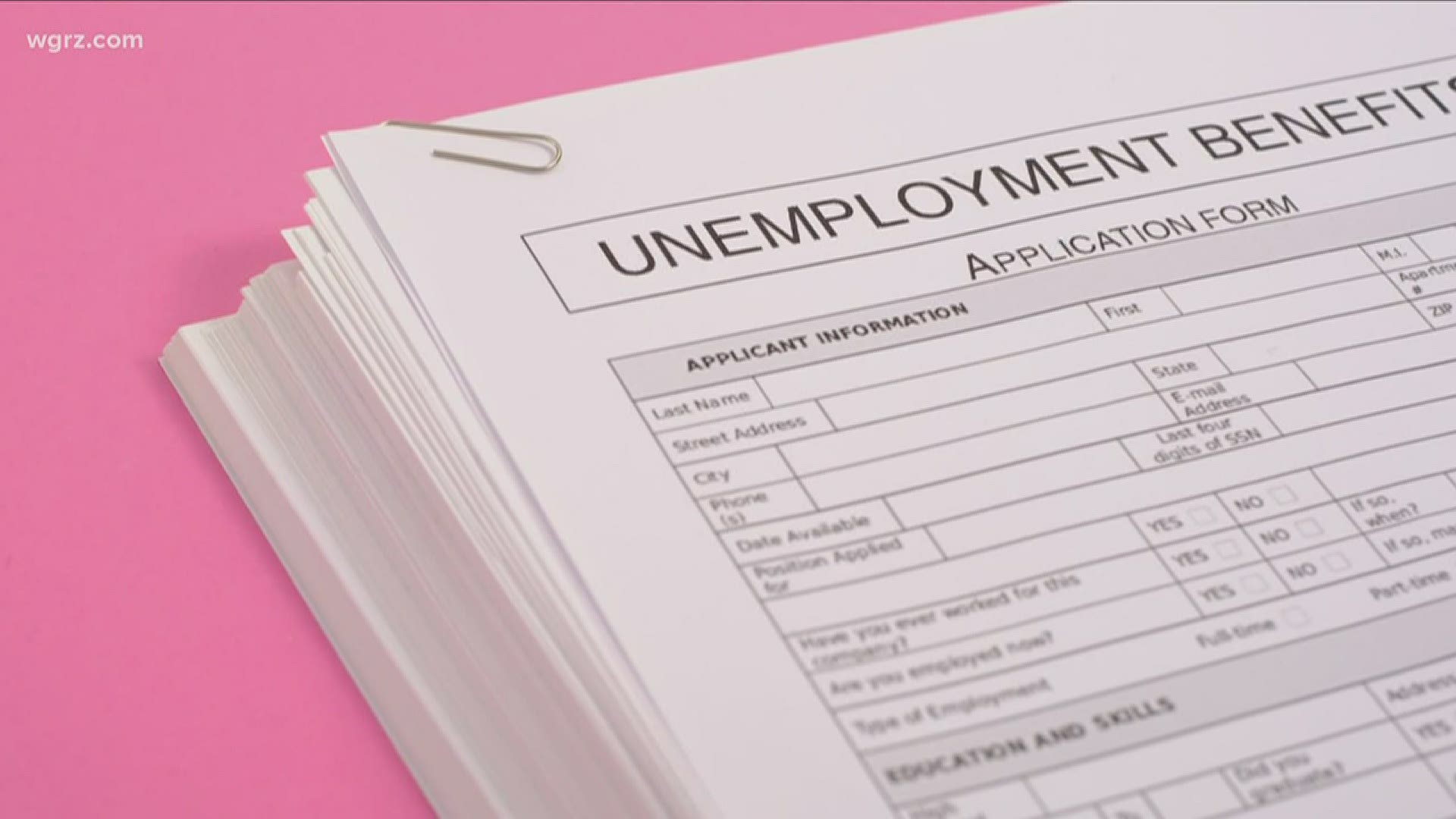ALBANY, N.Y. — New York Gov. Andrew Cuomo confirmed Wednesday that New York State will make an additional $600 payment to all who filed for unemployment, which will be reimbursed by the federal government.
Under the Federal Pandemic Unemployment Compensation (FPUC), states will administer the additional $600 weekly payment to certain eligible individuals who are receiving unemployment benefits.
The state will also extend the period covered by unemployment benefits for another 13 weeks, for a total of 39 weeks.
Gianna Totaro lives in Buffalo, and she told 2 On Your Side that she has been trying to collect unemployment for two weeks after losing both of her jobs.
"It will offer me to put in my Social Security number and my PIN number to speak to someone, then you have that kind of glimmer of hope that you actually got through," Totaro said.
"But then it will kind of give you a voice recording saying we’re sorry, we’re overloaded with calls, and then it will just hang up on you."
Governor Andrew Cuomo's secretary, Melissa DeRosa, said Tuesday that the New York State Department of Labor has partnered with Google to bring a newly updated website for people trying to file for unemployment in New York State.
The new interface system should allow more people to sign up at one time, without crashing the website.
DeRosa said it should be ready by the middle of this week.
The State Department of Labor has also hired more staff members to help answer calls. The department hired 300 more staff, which is in addition to the 700 staff already added earlier during this pandemic.
Human coronaviruses are usually spread through...
- The air by coughing or sneezing
- Close personal contact, such as touching or shaking hands
- Touching an object or surface with the virus on it, then touching your mouth, nose or eyes before washing your hands.
Help stop the spread of coronavirus
- Stay home when you are sick.
- Eat and sleep separately from your family members
- Use different utensils and dishes
- Cover your cough or sneeze with your arm, hot your hand.
- If you use a tissue, throw it in the trash.
Lower your risk
- Wash your hands often with soap and water for at least 20 seconds. If soap and water are not available, use an alcohol-based hand sanitizer.
- Avoid touching your eyes, nose, and mouth with unwashed hands.
- Avoid close contact with people who are sick.
- Clean and disinfect frequently touched objects and surfaces.
- If you are 60 or over and have an underlying health condition such as cardiovascular disease, diabetes or respiratory illnesses like asthma or COPD, the World Health Organization advises you to try to avoid crowds or places where you might interact with people who are sick.

